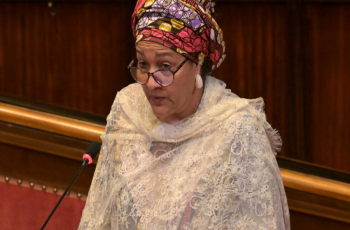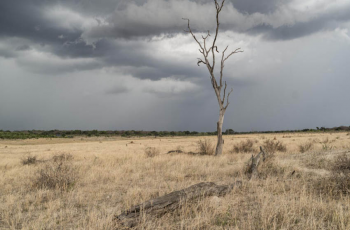ICIMOD Calls Applications for Doctoral Fellowship: 2019 in Nepal
An allowance of USD 1,000 per month while at ICIMOD or at ICIMOD designated sites Non-Kathmandu based PhD Fellows will receive an additional USD 200 per month for accommodation PhD fellows who are enrolled at a university outside of Nepal

Photo: ICIMOD
The International Centre for Integrated Mountain Development (ICIMOD, http://www.icimod.org/) is a regional intergovernmental learning and knowledge sharing centre serving eight regional member countries in the Hindu Kush Himalaya (HKH)—Afghanistan, Bangladesh, Bhutan, China, India, Myanmar, Nepal, and Pakistan. ICIMOD aims to serve the region through information and knowledge generation and sharing to find innovative solutions to critical mountain problems. It facilitates knowledge exchange in its thematic areas of Livelihoods, Ecosystem Services, Water and Air, and Geospatial Solutions to address issues of common concern in Regional Members Countries as well as from transboundary perspectives.
The HKH region provides ecosystem services (e.g., water, food, energy) that directly sustain the livelihoods of 240 million people in the mountain and hills of the HKH. Nearly 1.9 billion people living in the 10 river basins also benefit directly and indirectly from its resources. The mountains in the HKH region act as an ecological buffer, influencing the temperature, monsoon, and rainfall pattern of South Asia, and create favourable conditions for agriculture. Similarly, HKH is home to immense cultural and ethnic diversity and is home to four of the 34 global biodiversity hotspots. But in recent years, global processes such as globalization and climate change together with rapid population growth, urbanisation, migration, feminisation of rural labour, and national/local economic development have begun to pose a challenge to the traditional livelihoods of mountain people and mountain socio-ecological systems as a whole. Many mountain communities are excluded from enjoying the benefits of recent economic developments in the region/nations, resulting in a higher proportion of poverty in mountain areas. ICIMOD seeks to understand these challenges and find solutions for enhancing the livelihoods of mountain people. It seeks to enhance the adaptive capacities of mountain people and ecosystems to the climate, environment, and socioeconomic changes through knowledge generation and sharing.
The Himalayan University Consortium (HUC http://www.huc-hkh.org/) is one of ICIMOD’s initiatives under the regional programme titled Mountain Knowledge and Action Networks (MKANs). This initiative provides a platform to enhance collaboration among the universities of the region and to promote centres of excellence on key topics relevant to the region. The aim is to build a dynamic mountain knowledge partnership among universities, ICIMOD, and regional member country partners to promote research and learning. This network engages students and professionals capable of undertaking high-quality research, education, teaching, and knowledge dissemination in service of mountain-specific, sustainable, fair and inclusive development for HKH communities and adjoining mountainous areas. In continuation of this commitment to promote students’ involvement in high-quality research, the HUC invites applications from doctoral students to conduct their research under the co-supervision of high profile scientists at ICIMOD. The aim is to bring regional scientists and students to work together on areas of mutual interest with the eventual goal of fostering transboundary collaboration in the region.
Doctoral Fellowship Programme
We seek high calibre PhD students to work with us in better understanding the challenges faced by mountain societies and ecosystems in the region and their solutions. ICIMOD is not a degree-granting institute; we seek students who are already enrolled in PhD programmes at accredited institutions. ICIMOD will host their research activities and ICIMOD scientists will co-supervise the PhD fellows. This PhD call focuses on the research topics given below.
Research Topics
ICIMOD is open to specific research questions/hypotheses within the following broad categories:
Livelihoods
Air pollution and poverty linkages
Air pollution impacts on human health
Air quality management and governance in HKH – Institutions and Policies
Air pollution mitigation and policy
Air pollution impact on agricultural productivity
Vicious circle of poverty – exposure to pollution – poor health – poverty
Safe food production
Climate-resilient agriculture in the mountains
Ecosystem Services
Open biomass burning (forests and agriculture) and its impact on soil and other ecosystems
Air pollution impact on ecosystems
Water and Air
Trace gas measurement/modelling
Aerosol measurement/modelling
Aerosol-cloud/monsoon interactions
Regional and urban air quality modelling
Persistent winter fog over the Indo-Gangetic Plain
Emission characterization and inventory development
Geospatial Solutions
Understanding transboundary air pollution using remote sensing techniques
Remote sensing of air pollution over complex terrain
Data analysis and visualization of chemical transport models
Developing supporting systems for improved predictability of chemical transport models
Understanding the impact of absorbing aerosols on glacier albedo
Terms and Conditions
Each PhD fellow needs to have an ICIMOD scientist serve officially as co-advisor, committee member, or equivalent
Data and knowledge products generated under this fellowship programme are subject to ICIMOD’s data policy
The fellow must be based at ICIMOD headquarters or ICIMOD designated sites during the period of the fellowship
The fellowship period is one year, extendable for a second year subject to the candidate’s exceptional performance and budget availability
Financial Support
An allowance of USD 1,000 per month while at ICIMOD or at ICIMOD designated sites
Non-Kathmandu based PhD Fellows will receive an additional USD 200 per month for accommodation
PhD fellows who are enrolled at a university outside of Nepal will receive reimbursement for travel costs incurred when first travelling from and finally returning to home institute
Requirements
ICIMOD aims to select two-thirds of the fellows from ICIMOD member countries, and for half the fellows to be women. Fellowships will be linked to the Himalayan University Consortium (HUC).
The candidate should meet the following requirements:
Citizen of one of the following countries: Afghanistan, Bangladesh, Bhutan, China, India, Myanmar, Nepal, Pakistan; or any international student currently doing research on the above mentioned topics and specifically focused on the HKH region
Preference will be given to HUC member institutions
Must be an admitted/registered PhD student
Letter of support from PhD Supervisor and Head of Department should be provided
Letter from the Head of Institution confirming that an ICIMOD scientist will serve as co-adviser, committee member, or equivalent is required once short-listed
Candidates should be willing to work in an interdisciplinary team and have excellent analytical, technical, and communication skills
Must be willing to be based at ICIMOD headquarters or ICIMOD designated sites during the period of the fellowship
Procedure for application
Applications should be submitted online https://www.huc-hkh.org/grant/detail/icimod-doctoral-fellowship-2019 along with the following documents:
Letters of support from PhD supervisor and Head of Department agreeing to ICIMOD terms and conditions mentioned above
Cover letter describing the motivation to apply, clearly mentioning the thematic area to which they are applying
Preliminary research proposal within the broader research areas mentioned above (2–3 pages)
Curriculum vitae, including information on education, research experience, and, if applicable, list of publications
Selection and award decisions will be made by a selection committee formed by the ICIMOD management. The ICIMOD management will decide which ICIMOD scientists will serve as co-supervisors.
Application deadline is 31 January 2019.
-

US sterilizations spiked after national right to abortion overturned: study
2024-04-13 -

Future of Africa's flamingos threatened by rising lakes: study
2024-04-13 -

Corporate climate pledge weakened by carbon offsets move
2024-04-11 -

Humanity lost 'moral compass' on Gaza: top UN official
2024-04-10 -

No.1 Scheffler says patience and trust are secrets to success
2024-04-10 -

From homeless addict to city chief: the unusual journey of Canadian mayor
2024-04-10 -

Slovenian spiderwoman Garnbret eyes more Olympic climbing gold
2024-04-07 -

Academic freedom declining globally, index finds
2024-04-04 -

Zimbabwe declares El Nino drought a national disaster
2024-04-03 -

From polar bears to groundwater, nature is riddled with 'forever chemicals'
2024-04-03
